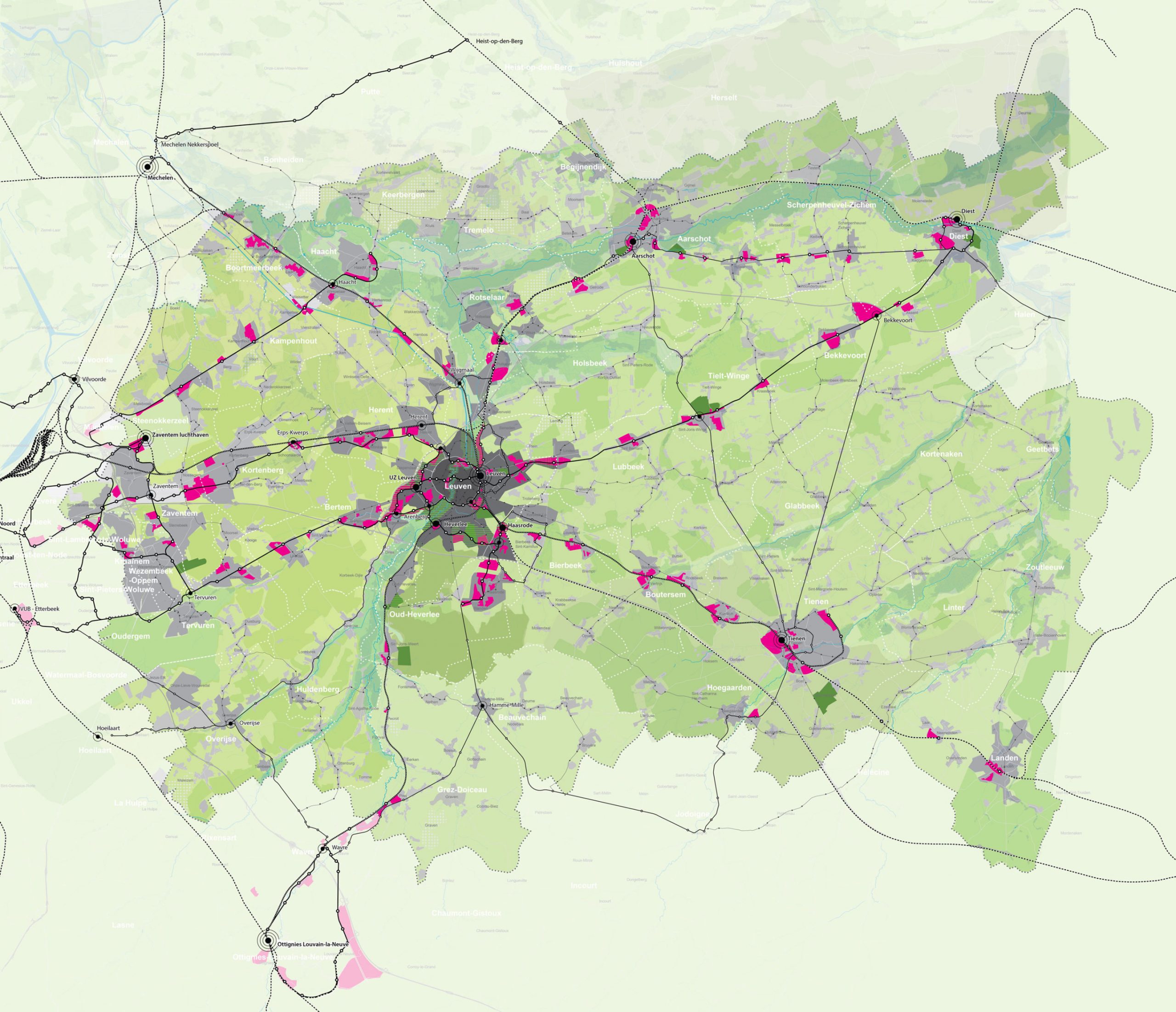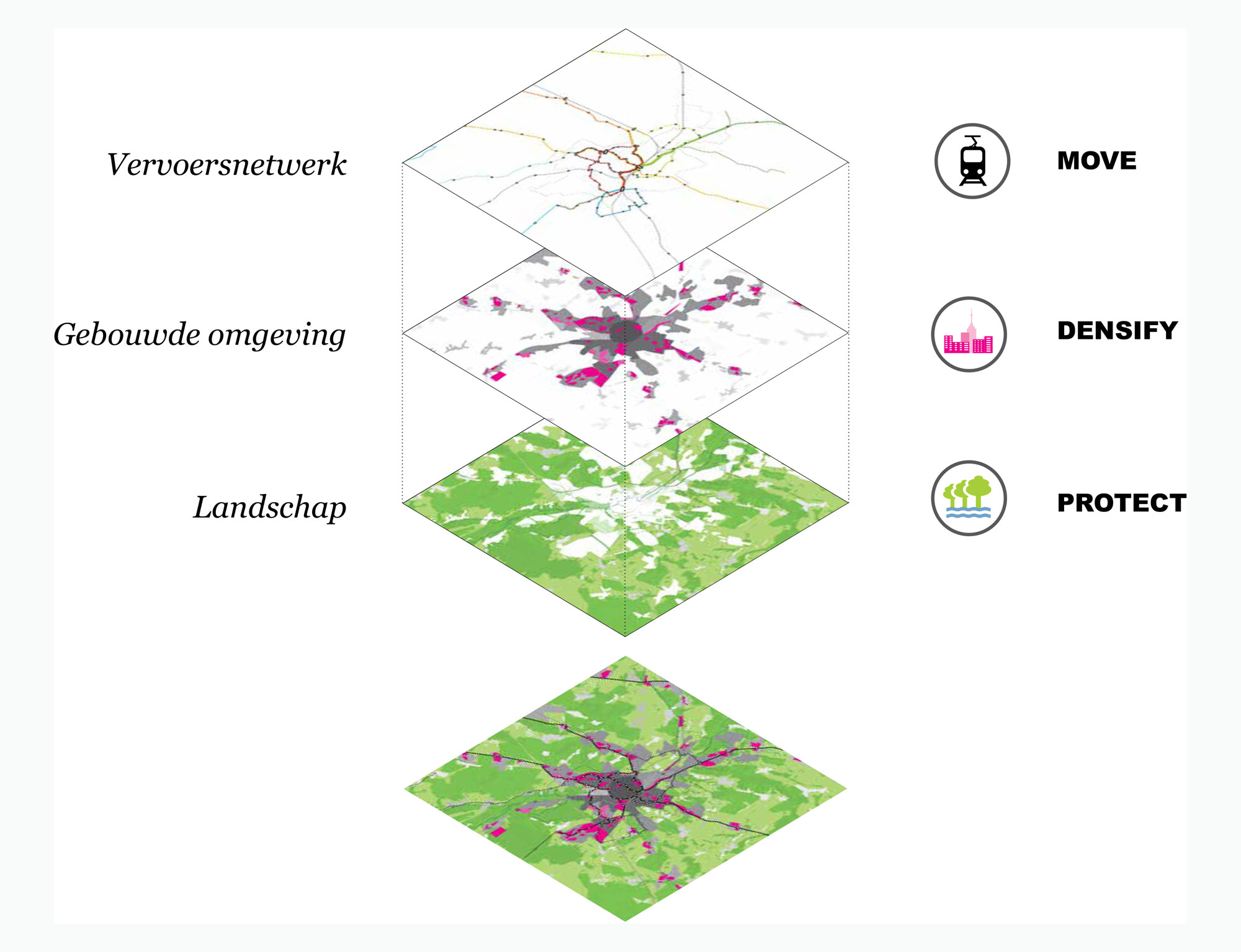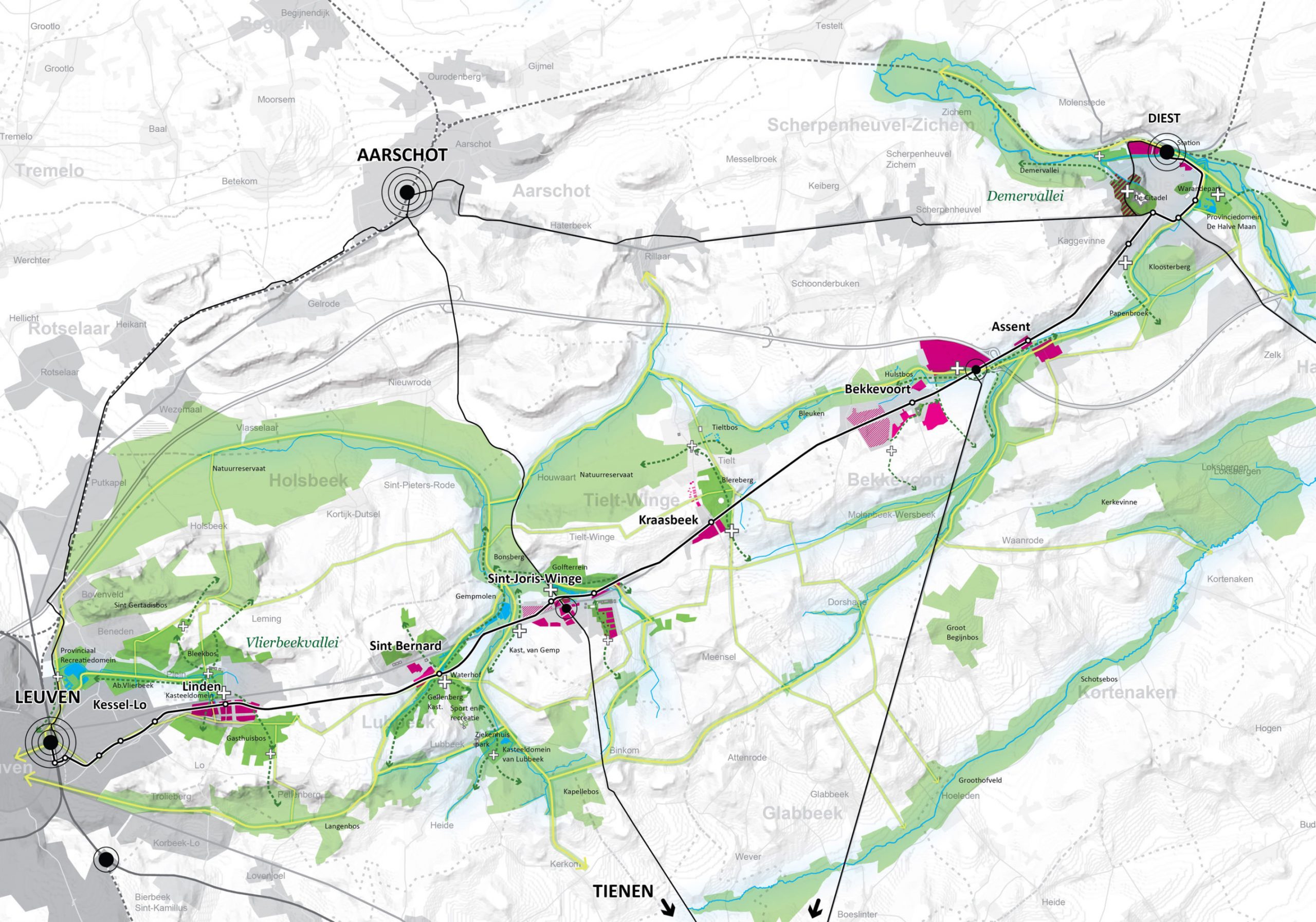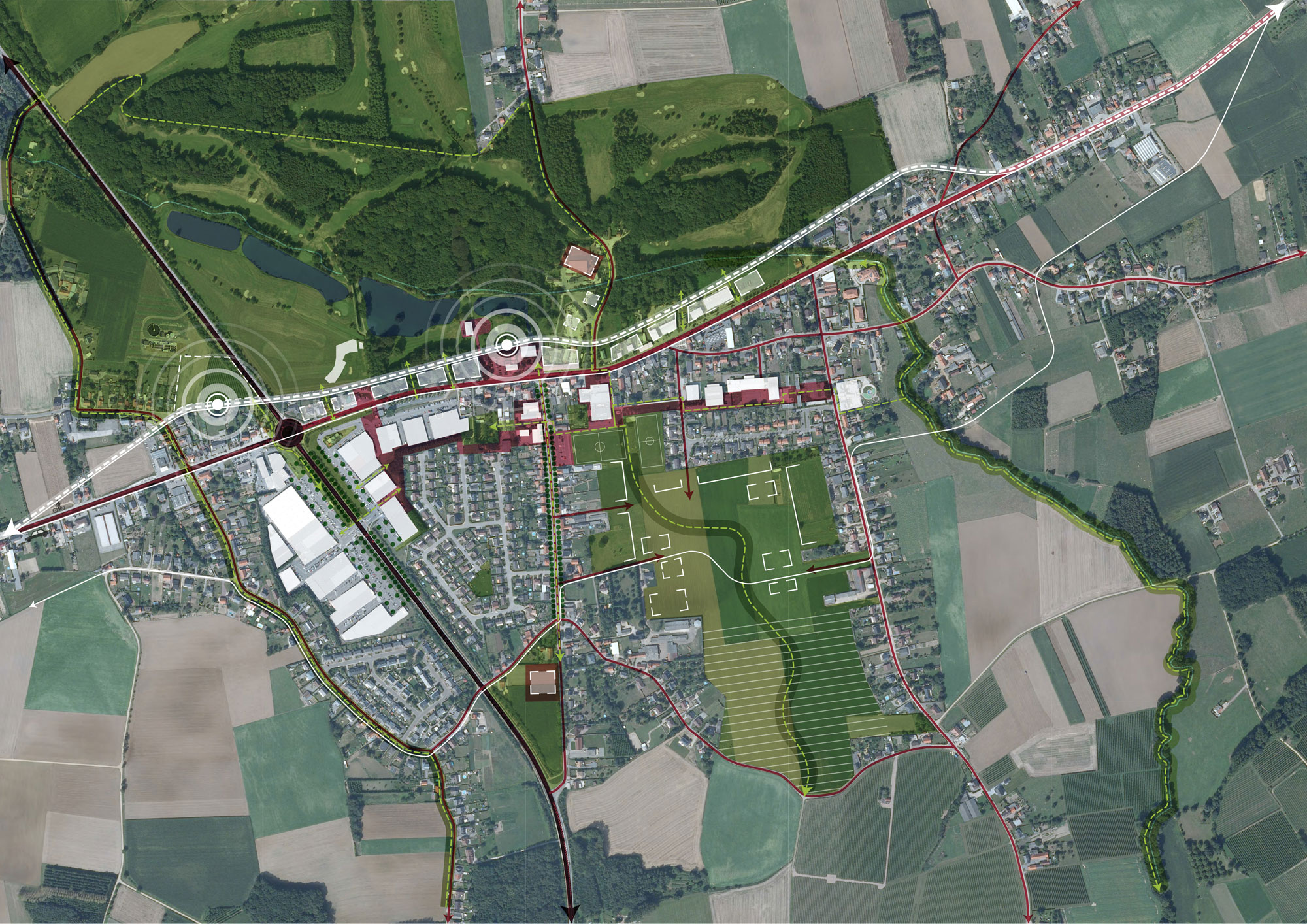The “Regionet Leuven” project was initially set up by BUUR as a case study for the Strategic Basis -Research (SBO) project “Orderin’F”, in which different universities studied the relation between high quality regional public transport and spatial planning.
This case study turned out to be a trigger leading to further action. “Regionet” won the “Vlaamse Planningsprijs” (“Flemish Planning price”) and was recognized as a strategic Flemish Project. The Province of Flemish Brabant decided to adapt its spatial policy to the project. At the beginning of 2015, the province, the city of Leuven, the public transport companies “De Lijn” (bus company) and “NMBS” (national railway company), the “Agency for Roads and Traffic” (AWV), the service company “Interleuven” and the governmental department “Ruimte Vlaanderen” have decided to set up an intergovernmental cooperation in order to harmonize their spatial and mobility policies according to “Regionet”. A first pilot project consisted in the organization of a qualitative public transport line between Diest – Leuven – Tervuren.
Besides this top-down approach, BUUR also wanted to initiate a bottom-up awareness campaign. This is why the team took the lead in the low-car city center project set up within the scope of “Leuven Climate Neutral 2030”, a local initiative aiming climate neutrality by 2030. Through this project, BUUR intends to mobilize as many social actors as possible in order to accelerate the making of the city center of Leuven as a low-car zone by 2020. By conducting this large-scale experiment, BUUR wants to convince the local authorities and the population of the effectiveness and the added value of a traffic-low city center.






